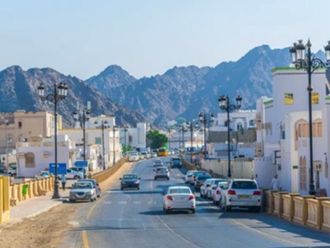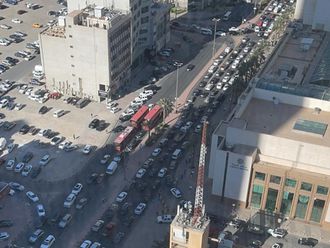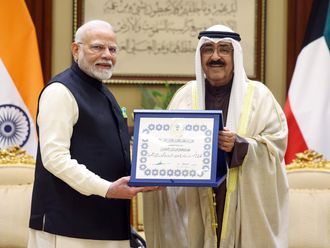Muscat: Oman’s Minister Responsible for Foreign Affairs, Yousuf Bin Alawi Bin Abdullah, has hinted that appointing a prime minister in the country was a complex issue and at the same assured that a mechanism was in place to name successor to the current leader as and when the need arises.
Interacting with the board members of the Oman Journalist Association (OJA) on Monday at the Diplomatic Club, Yousuf Bin Alawi said that appointing a prime minister in Oman was not as easy as people thought.
“Who will you appoint? Someone from the royal family or a tribal leader?” he countered in reply to a question posed by one of the OJA office-bearer.
Only once, in early seventies, Oman had a prime minister in Sayyid Tareq Bin Tamiour, the Sultan’s uncle. After him, Sultan Qaboos Bin Saeed has held the position of the prime minister and chairs all meetings of the Council of Ministers.
The Omani leader is also in charge of the portfolio of defence, finance and foreign affairs. He also serves as the supreme commander of the armed forces. Yousuf Bin Alawi also said that once a prime minister is named all the responsibilities would fall on him and people would hold him responsible for any governing mistakes.
“We have seen frequent change in prime ministers in so many countries,” he said, hinting that in Oman it was a complex question. Awadh Bin Saeed Baquwair, a veteran political analyst in Oman as well as OJA Chairman, echoed the foreign minister’s sentiments and said that it was a tough question to answer.
“We have a system now that works smoothly so why talk about changes and appointing a prime minister,” he reckons. However, in second breath he adds that no one can say about the future. “May be that can happen in Oman in future but for now we have a good system in place.”
The foreign minister also reiterated that there was no need to fear about the succession plans in Oman. “There will be no vacuum,” he assured.
In his opinion the law was in place for a mechanism that would decide the successor to Sultan Qaboos as and when the need arises. The Omani monarch made amendments to the Article VI of the Basic Law last year, giving the people’s elected representatives a place among the decision makers to decide a successor to the throne.
The Chairmen of the State and Shura Councils respectively have been added to this process of deciding a successor to the throne. The law says that the Ruling Family Council shall within three days of the throne falling vacant determine the successor to the throne.
If the Ruling Family Council does not agree on the choice of the successor to the throne, the Defence Council together with chairmen of State Council, Shura Council, Supreme Court and two of its oldest deputies, shall confirm the appointment of the person designated by the sultan in his letter to the Ruling Family Council.
He also cautioned against the rumours.
“The rumours have become a serious problem and social media fuels it further,” he pointed out, adding that this phenomenon can only be countered by truth and transparency.
When asked why Oman was not doing tit-for-tat in the case of complex visa procedure introduced by some of the European countries for Omanis?
He said: “We do not believe in that kind of policy but we have taken up the issue with the concerned European countries although the policy by these countries was common for other countries, including GCC member states.”












